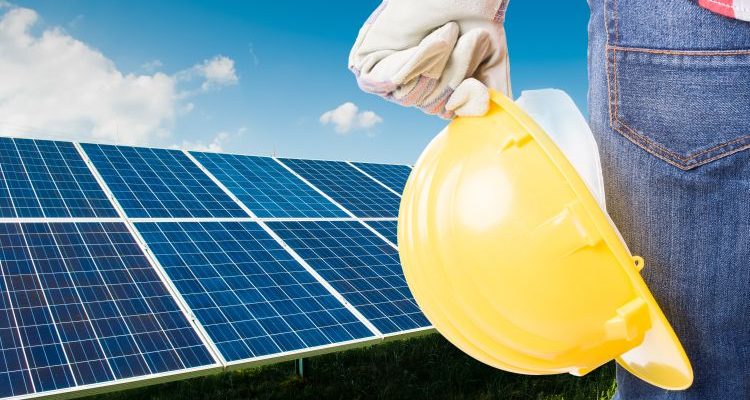Solar Panel Maintenance: A Beginner’s Guide In 5 Simple Steps
Solar energy is considered one of the lowest maintenance energy sources. Solar panels are durable, long-lasting, and (usually) have no moving parts that could start malfunctioning or wear over time. Another advantage when it comes to maintenance is that most issues in an individual solar panel won’t affect the rest of the system; you will still be provided energy, but a bit less than normal. Even though solar panel maintenance is minimal, there are still certain things you should take into consideration and despite a warranty from your solar panel provider, there are issues that aren’t covered. This upkeep and possible repairs usually require assistance from a professional, which can be seen as an investment since it will make sure that your energy production is up to par.
What Is Generally Covered By Solar Panel Warranties?
Modern-day solar panels are estimated to last between 25 and 30 years, and some even up to 50, and well-known and trusted producer usually provide their customers with a warranty for the majority of the approximated lifetime of the panels. However, this is not a thing you should take for granted, so make sure to check the warranties and what exactly is included before buying. Making sure you have a decent one can save you a lot of money and hassle in case something goes wrong. Even though a warranty isn’t really part of the solar panels maintenance, setting a little bit of time aside for some research can prove to be worth it in the future.
Solar panels actually have two warranties; a product or material warranty, as well as a performance warranty. The product warranty covers defects in the solar panels themselves, for example in the materials used or in the construction of the panel. In case you happen to get a faulty panel, a good producer should provide you with a new one, also covering shipping and installment costs. The performance warranty is connected to the longevity of your product: manufacturers usually guarantee a certain performance, in the sense of the level of energy production, even when you’ve had your solar panels for some years. As a practical example: any good solar panel system should not lose more than 10 – 20% of its initial output of energy even after being in use for 25 years.
Professional Maintenance Of Solar Panels
Not all issues are covered by even a good warranty, and sometimes the only way to deal with these is to consult a professional. Some of the most common issues when it comes to solar energy production is an issue in a panel or its connection. Usually these problems are caused by the weather, for example by hail or other extreme weather conditions, and not because of a fault in the panel itself. A connection issue usually only causes labour costs and takes around an hour to repair. When it comes to a broken panel, you might have to add some basic supply costs in addition to the labour, or in the worst case replace the entire panel. Usually a cracked panel can be repaired through laminating it or other similar processes. You might be able to rescue a cracked panel before it completely breaks if you notice a crack early enough, so to regularly keep an eye on your panels makes a lot of sense. One of the more expensive repairs is replacing electrical components, like the inverter, which could reach up several times the cost of simply replacing a broken panel.
The labour costs naturally depend on the area where your solar energy production systems are located. However, some factors to consider are how difficult the panels are to reach. If your solar panels are installed on a particularly tall building or a very steep roof, this might cause some additional risk for the solar panel technician and therefore costs for the owner of the system. However, because of these risks, it is usually the best idea to hire a professional also for solar panel maintenance you think you could do yourself, such as cleaning. Professionals are used to difficult conditions and have the right tools to do these jobs both efficiently and thoroughly, and with minimal risk of damaging the panels or the system.
Five Essential Tips For Solar Panel Maintenance
The key thing for efficient energy production is to have clean panels. Naturally, the sunlight has to reach the solar cells in the panels, with as little obstruction as possible. The first step in solar panel maintenance is to make sure there are nothing in the way for the sunrays; the solar panels have to be installed in a good, open place with as little shade as possible during any point of the day, and the panels should also be free from debris such as leaves or snow. Your solar panel technician can help you with removing these kinds of obstructions, he or she has the right tools to do this quickly and efficiently. Above all, your technician will know how to be careful enough not to scratch the panels.
Cleaning solar panels should only be done with demineralized water. In a dry and dusty area, the washing should be done more often than in an area where it rains a lot. The solar panel technician uses soft brushes or special robots to clean the panels, and never a pressure wash since this could damage the panels. It is clever to schedule the solar panels cleaning for either early in the morning or late at night when the solar panel glass is cool. This prevents module damages, as they are too hot during the day and cold water could harm them. Remember that cleaning requires the solar panels to be switched off, which will cause a temporary dip in your energy production!
Scheduling an annual check-up for your entire solar panels system is definitely a highly recommended part of solar panel maintenance, especially to ensure that everything works properly after the winter months. This is done by a professional technician and the price, again, depends on the accessibility and size of your solar panels. Sometimes the contractor that initially installs your panels can offer you a good deal on annual inspections. The technician inspects everything from the panels themselves, to energy production levels, meters, cables, and mounting systems.
The last thing is quick and easy to do regularly, so make sure you make it a habit! Your solar panel system normally comes with a monitoring sotware, so that you can keep up with the levels of energy produced, and therefore also notice a decline – maybe it is time to clean the panels. These monitoring systems can also report damages in the solar panel system, which makes it possible for you to deal with issues on time before they become more serious.
Summary:
- Despite solar panels being low maintenance, they need some regular care to stay on top of their energy production
- Choose a solar panel manufacturer that offers a good warranty, and consult professional technicians when necessary, for your own safety and to avoid damaging the solar panels
- A solar panel professional does yearly inspections, repairs, changes faulty panels and cleans solar systems that are difficult to reach
- Your solar panel technician will also keep your panels clean and free from any obstructions that might lower your energy production
- Scheduling an annual solar panel inspection, keeping an eye on the monitor of the system and investing in automatic cleaning systems are also recommended





